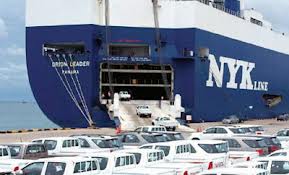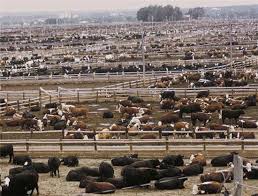March 20, 2014
BURLINGTON, ON.
Another day, another free trade deal. Canada has landed what is being called a big one, this time with South Korea. Promoted by both Liberal and Conservative governments, these trade deals have inadvertently contributed to the de-industrialization of Canada.
Recall the sound of doors closing and windows being shuttered as the ink was drying on our first trade deal, the Canada-US FTA. Many of Ontario’s small and medium manufacturing enterprises, acting like characters in a Steinbeck novel, packed up and moved to larger markets, a warmer climate and the lower wage rates south of the border.
Former Ontario premier, David Peterson, had predicted that a quarter of a million jobs would be lost to FTA, and indeed, unemployment in Ontario more than doubled as its manufacturing sector took the hit. And then there was NAFTA. The Economic Policy Institute, a research think-tank in the US, estimated that by 2010 NAFTA had lost 700,000 US jobs to Mexico. It is worth recalling US presidential candidate Ross Perot and his famous prediction of a ‘giant sucking sound’, as American jobs rushed off to Mexico.
Free trade is just another economic theory. Hypothetical notions of absolute and comparative advantage sound logical on paper. But, the reality can be so different, particularly if the playing field is uneven, if your trading partners don’t play fair. South Korea is one of those nations which adjusts its exchange rates to make their exports competitive, and the nation employs a raft of non-tariff barriers to discourage its citizens from buying foreign goods.

Cars being loaded on to ship for transportation to North America. with tariff removed many of those cars will come to Canada.
The Korean deal is being sold as offering greater access to the Korean market for Canadian beef and pork, but even the government accepts that Canadian manufacturing, and auto making in particular will be hit by this deal. The US signed a trade deal, just last year, with South Korea (KORUS FTA) and their experience was that the US lost 40,000 jobs, and its historical trade surplus with Korea was turned into a substantial deficit.
Ford Motor Company, whose US parent had not initially objected to the KORUS FTA, pointed out this sad experience to the Canadian government just as we were putting the seal on our own trade deal. The PM’s response was a sharp rebuke to the manufacturing giant, accusing Ford of ‘duplicity’. Ford is Canada’s largest auto maker, employing about eight thousand people in Ontario and responsible for substantial spin-off employment, mainly in Ontario. Currently about a half million Canadians are employed in the auto industry, with fully a third of those in manufacturing. All Korean-made cars are imported into Canada.
Another potentially impacted auto-maker, Fiat-Chrysler, had been in discussions with the federal and provincial governments over financial support to help it expand its manufacturing operations in Ontario. Last September Ford had been awarded $140 million in a similar move to help it upgrade its plants. In fact the federal government maintains an open budget allocation just for this purpose. And jurisdictions south of the border have long used grants and loans to attract auto companies and other large employers to their states.
Before either the federal or provincial governments could officially respond, Ontario’s provincial opposition leader, Tim Hudak, slammed any funding for Chrysler, calling it ‘corporate welfare’, ‘extortion’ and ‘ransom’. Both official levels of government were stunned and Chrysler immediately withdrew its request, claiming that it was not prepared to become a ‘political football’. Mr. Hudak, who is fond of complaining about Ontario losing its industrial base and jobs, needs to reflect on his behaviour and how he has shown himself to be unfit for the job of premier of this province. And his party needs to show him the door before the next provincial election, something a number of PC party members have already contemplated.
There will be winners and losers from this South Korean trade deal. While some beef and pork producers from Ontario and Quebec may see increased sales, most of the meat products will come from the west, primarily Alberta. On the other hand, Ontario auto makers Ford, Chrysler and GM, will los e sales to even cheaper Hyundai and Kia models, depressing both employment and provincial incomes.
e sales to even cheaper Hyundai and Kia models, depressing both employment and provincial incomes.
Why would the federal government be so keen on adding more jobs into Alberta’s booming economy and driving up inflationary pressure there? And why are the feds OK with further depressing Ontario’s economy – the latest entry into the economic ‘have-not’club? It makes no economic sense, something that Ford and the Ontario government have been saying. And that is perhaps the reason this South Korean deal, which had been started a decade ago, had been left sitting on the shelf until now.
This is not only bad economic policy, it is patently unfair – unfair that a trade deal will benefit one province, one where the PM happens to reside, at the expense of another. Watching Quebec’s PQ government set the ground work for another sovereignty referendum, perhaps as early as next year, it is useful to reflect on what we tell Quebecers to expect by voting to stay in Canada. If it is not fairness, then what?
Background links:
Premier Peterson US Korean Trade Pact Free Trade and Jobs Auto Sector Worries Harper Slams Ford Harper Takes on Ford
Hudak Slams Chrysler Chrysler Backs Out

















Right on! We just must get rid of this PC government – they are wrecking Canada, especially Ontario.
Agreed, it is known that South Korea does not play fairly with regard to the auto trade sector. As for Chrysler, you can rest assured that their sites are set on long term costs. Taxes and hydro costs will be two of the big considerations going beyond 2016. Premier Wynne’s offer of $700m was refused because Chrysler admitted they did not need it. Had she done due diligence first, she would not have been surprised, and Hudac is not the Premier.